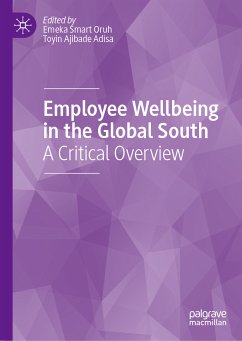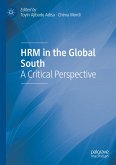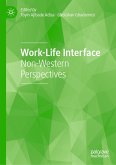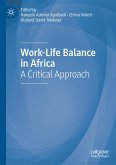The chapters not only capture the significance and impacts of contexts and cultures, but also, the different institutional environments that enhance or suppress employee wellbeing in employment relations. With a critical lens, this book explains how assumptions should not be made of employee wellbeing without a knowledge of the regional, national or local context. It will be of great interest to scholars and students of HRM, work and employment and international business.
Emeka Smart Oruh is a Senior Lecturer in Human Resource Management and Organisational Behaviour at Brunel University London, UK. Previously, he lectured at the University of Portsmouth School of Business and Law, UK. His key research examines organisational behaviour, employee relations and HRM, particularly in emerging and developing markets. He has published widely in books and journals.
Toyin Ajibade Adisa is an Associate Professor in Organisational Behaviour and Human Resource Management at the University of East London, UK. He teaches and researches issues in comparative HRM, employment relations and reforms in emerging and developing economies. His primary research interests lie in the broad academic disciplines of human resource management, workplace behaviour, and employee relations. He is particularly interested in African HRM practices and policies and contemporary Sub-Saharan African employment relations. He has published widely in books and journals.
Dieser Download kann aus rechtlichen Gründen nur mit Rechnungsadresse in A, B, BG, CY, CZ, D, DK, EW, E, FIN, F, GR, HR, H, IRL, I, LT, L, LR, M, NL, PL, P, R, S, SLO, SK ausgeliefert werden.
Hinweis: Dieser Artikel kann nur an eine deutsche Lieferadresse ausgeliefert werden.









